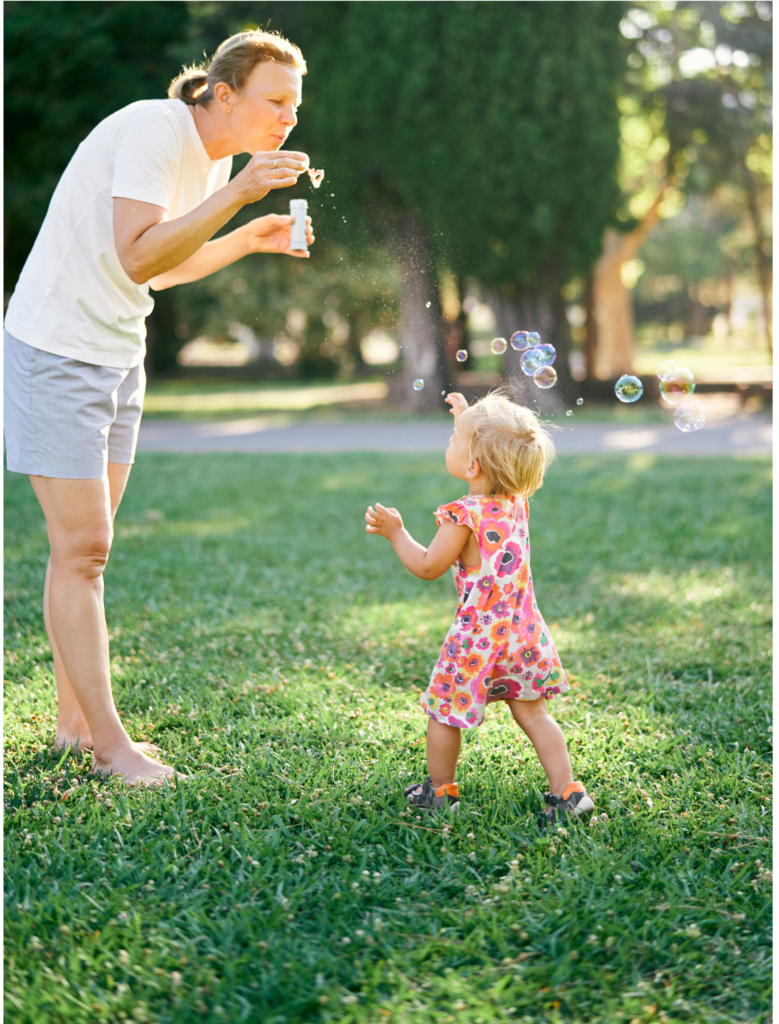Playing and being outside in nature is good for children’s health and wellbeing on many levels. In schools and child care centers they work with different schedules, but they all have time for outdoor activities where children play and share different activities. Taking them out can help with motor development and physical health in general. Exploring nature is a way to encourage children’s curiosity, creativity, and critical thinking. Spending time outdoors can also help children reduce their stress and increase their concentration.
These are some ideas of outdoor games to try, depending on your child’s age:
Outdoor play ideas for children ages 2 to 5
Pop bubbles and take out the ball.
Blow bubbles and challenge kids to chase and catch them or pop them. Who can make the biggest bubble? Who can blow a double bubble?
A fun activity for toddlers is to fill a bucket with water and some dish detergent. Give the child a whisk to stir the bubbles and explore their properties. Playing ball is another great way to get kids this age involved outdoors. Sit on the grass facing each other and roll a ball back and forth.
This not only develops motor planning and balance skills, but also helps teach social turn-taking and observing the body language of others.

5 tips for children to have fun and be safe
1. Keep children close
Be sure to watch carefully (either yourself or another adult) so that younger children don’t wander away or go up alone to the swings or play near the street.
2. Use safety measures around pools and hot tubs
Drowning is the leading cause of death among children under 4 years of age. Provide constant tactile supervision around pools, hot tubs, ponds and other bodies of water.
3. Setup the home playground safely
Anchor large home playground equipment deeply and securely to prevent wobbling. Install swings at least 6 feet from walls and fences. Look for openings in play structures, such as gaps in cargo nets, which should be less than 3 1 ½ inches (9cm) or more than 9 inches wide (23cm). This can prevent a small child’s head from getting trapped and prevent children from falling.
4. Avoid mowing the grass while children play
Electric lawnmowers can throw sticks, stones, and other objects with enough force to cause serious damage.
5. Help prevent insect bites
Avoid brightly colored clothing, as well as scented soaps and lotions, which may attract bees and wasps. Empty water from pools, bird baths, and other structures where stinging insects may breed. Long sleeves, pants, and hats can also protect against ticks in tall grass, bushes or wooded areas. When using insect repellent, consider one with 10% to 30% DEET. however, do not use DEET on children younger than 2 months and make sure the parent authorizes these repellents or sunscreens.
Courtesy of Precious Moment Child Care




